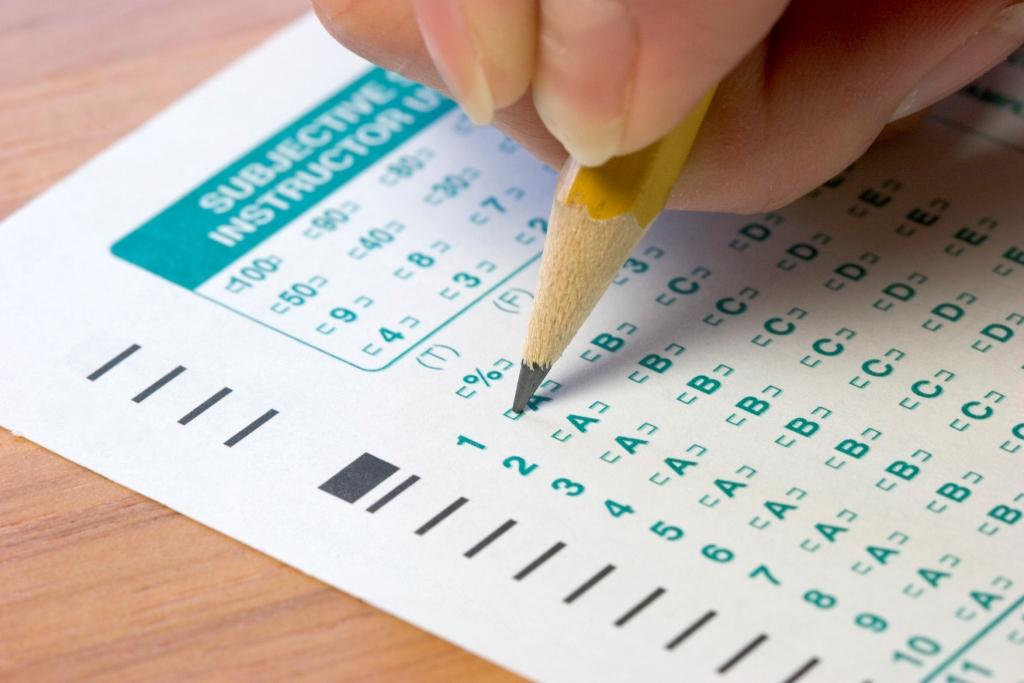
Examinations and tests are indispensable aspects of education as they determine the level of progress of students. Tests measure a student’s level of understanding of a particular subject and find out their weak areas of that subject. Tests help a subject chapter in achieving its learning objective. Tests also induce a student to study thoroughly and retain the important areas of a subject.
However, they are also one of the sources of anxiety and stress for students. So much so that they literally give many sleepless nights to students! Tests are mandatory for all students irrespective of their class.
Thus, it is important for students to prepare well for their tests and have their own strategies that will enable them to pass their subjects in flying colors.
Some of the test taking tips are listed below that can help students to do well in their subjects:
1. Be confident and build a positive attitude: Being confident will help you to prepare well and having a positive attitude will help to succeed. You need to have the confidence that you can do well in the tests and it will help you to prepare for the subjects in a positive frame of mind.
2. Build a strategy: Prior to the test, inquire about the main topics the test is going to touch. Will the questions come only from the textbook, or from notes, or from any practical case studies? Also ensure that you have focus more on the learning objectives of each chapter and less on the trivia. Make yourself available in the review sessions and listen closely to the teachers for any hints about the upcoming test. You can request the teacher to point out the parts of a subject that will be highlighted on the test.
3. Make adequate preparation: The more you prepare on a long term basis, the better you are likely to perform on the test. You need to start your preparation much before the tests by remaining attentive in the class, taking notes, understanding the subjects well, submitting completed assignments on time, and revising the subjects taught on a regular basis.
4. Get adequate rest: Not getting enough sleep before a test is more harmful for your memory and cognitive ability. Your brain needs at least five hours of sound sleep to function at its level best and sacrificing on your sleep will hamper your performance during exams.
5. Relax and enjoy some downtime: With the anxiety levels and palpitations at the roof top, relaxing before a test may sound preposterous but it is actually a necessity. Relaxing by taking a short walk, listening to some soothing music, taking a hot water bath, or enjoying a humorous video will reinvigorate you. Also enjoy some downtime for about 5-10 minutes doing nothing, taking deep breaths, counting your breaths.
6. Eat healthy and nutritious food: Before going to take a test, you need to ensure that you fuel your brain with high-quality nutritious food, which should not be heavy though.
7. Double check your pencil box: You need to double check your pencil box to make sure that you have every required stationery item to last you through the test. Double pens, pencils, geometry equipment, eraser, sharpener, etc. Do not forget to carry a calculator if it is necessary for the test and is allowed.
8. Manage your time efficiently and effectively: Once you are in the hall and you are handed over the question paper, first scan for the questions you can accurately answer and do those. You can attempt the tricky and difficult later.
9. Write neatly and clearly: No matter how hurry you are, always make sure your handwriting is clear and readable. It is of no use if you have written a correct answer but the examiner cant able to read it, or worse, perceive it as a wrong answer.
10. Review and recheck your answers before submitting the answer paper: To make sure you have written what you have intended to write it is important for you to review and recheck all your answers after you have attempted all your questions.














